A Blueprint for Building Interdisciplinary Support Groups
- Registration Closed
Experiencing stressful and potentially traumatic medical events can cause feelings of isolation and fear for every member of a family including patients, siblings, and caregivers. Group interventions, such as facilitated support groups, can be extremely beneficial in normalizing medical experiences by providing a safe space for pediatric patients and their families to express their emotions and relate to others. The training, skill set, and relationships that certified child life specialists uphold among patients, families, and the medical team places them in an ideal position for identifying a need and facilitating significant support group programming. Based upon theory and presenters’ firsthand experiences with interdisciplinary support groups, this presentation will provide a blueprint for any child life specialist who is looking to expound on their therapeutic competencies. Moreover, this presentation will promote the value of interdisciplinary collaboration, and will elaborate on how to identify the most suitable co-facilitators.
After this webinar, participants will have:
the ability to identify a population and need that could be better supported through the support group model
an increased knowledge of ways to best identify and facilitate interdisciplinary collaboration opportunities
an understanding of the research and therapeutic benefits of support group interventions
systematic guidelines for implementing a successful support group within a medical setting
the ability to identify the various types of support group models and the factors to consider when choosing the best one for each situation
examples of effective interventions to use with various support groups

Bailey A. Huber
MS, CCLS
Bailey A. Huber began her child life journey upon acceptance into the child life program at Bank Street Graduate School of Education in 2012. During her master’s program, Bailey held the role of child life assistant at Mt. Sinai Hospital, and subsequently interned at the Phyllis and David Komansky Children’s Hospital of the New York-Presbyterian Hospital/Weill Cornell Medical Center. After graduation and certification in 2014, Bailey obtained the role of burn service child life specialist on the William Randolph Hearst Burn Center at New York-Presbyterian/Weill Cornell Medical Center and has developed a strong passion for supporting the short and long-term coping and adjustment for pediatric burn survivors and their families.

Blakely M. Durham
CCLS
Blakely M. Durham laid the groundwork for her child life career with the studies and educational experiences achieved while at The University of Alabama. In addition to becoming certified in 2014, Blakely’s child life and professional competencies have been fostered by internship experiences at BabyTALK and Children’s of Alabama, and subsequent professional opportunities with Save the Children. Blakely currently assumes the role of the outpatient services child life specialist at the Phyllis and David Komansky Children’s Hospital of the New York-Presbyterian/Weill Cornell Medical Center where she works closely with many pediatric interdisciplinary teams, patients, and families in primary and specialized care, neurological surgery, CPAP, and craniofacial clinics.

Blakely M. Durham
CCLS
Blakely M. Durham laid the groundwork for her child life career with the studies and educational experiences achieved while at The University of Alabama. In addition to becoming certified in 2014, Blakely’s child life and professional competencies have been fostered by internship experiences at BabyTALK and Children’s of Alabama, and subsequent professional opportunities with Save the Children. Blakely currently assumes the role of the outpatient services child life specialist at the Phyllis and David Komansky Children’s Hospital of the New York-Presbyterian/Weill Cornell Medical Center where she works closely with many pediatric interdisciplinary teams, patients, and families in primary and specialized care, neurological surgery, CPAP, and craniofacial clinics.
